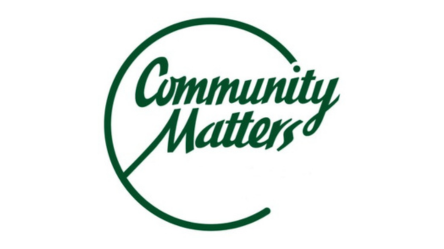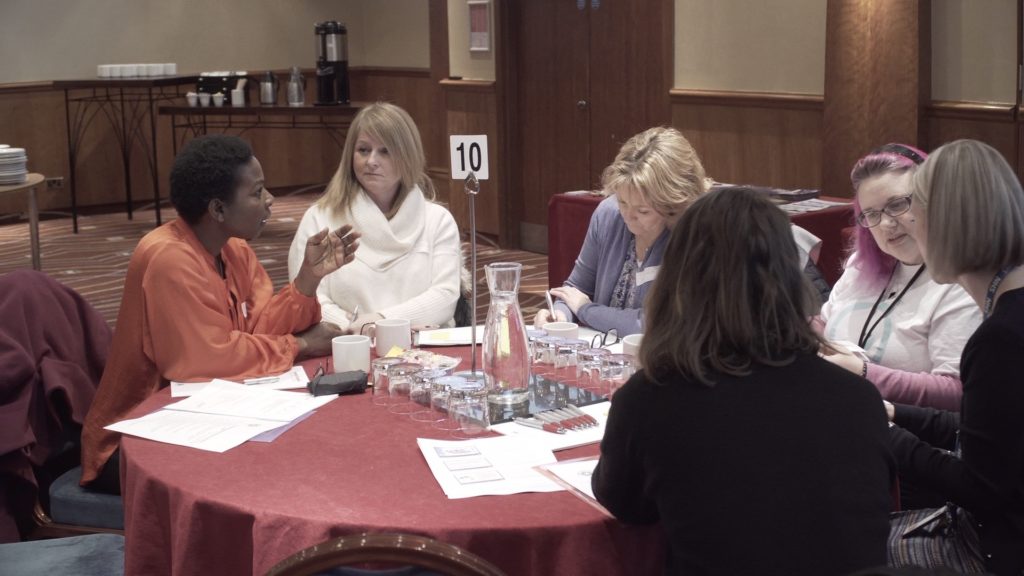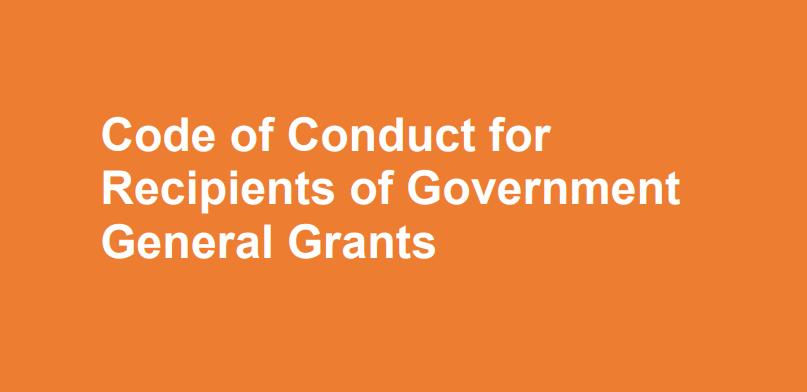Good Governance: Information for forums
This section provides guidance on good governance.
Governance refers to how your forum operates—what it aims to achieve, how it plans to achieve it, and how it remains accountable. Every forum needs strong governance arrangements to meet the requirements of the Department for Education (DfE) grant.
“The term ‘governance’ is used to describe systems and processes concerned with ensuring the overall direction, effectiveness, supervision and accountability of an organisation.” (The Governance of Voluntary Organisations, Cornforth 2003.)
Effective governance helps you:
- Clearly define your forum’s role, purpose, and ways of working
- Meet legal responsibilities and reporting requirements.
- Reduce risks and respond effectively when issues arise.
- Fulfil DfE grant conditions and safeguard your forum’s funds.
- Build trust and confidence in the forum to enable effective relationships with the parent carer community, partner organisations, and the public.
To avoid misunderstandings it is important to agree on written processes that explain how your forum operates. Develop these gradually as your steering group discusses and agrees on how to run the forum. Visit the Policies and Procedures section for examples and downloadable templates. You’ll find recommended policies for all forums, plus additional ones for specific areas of work.
Every forum should aim for good governance, though what this looks like may vary depending on your forum’s age and structure. You might find the Deciding on a Structure page helpful.
Don’t worry—forums are all different! Good governance evolves over time. Tailor your policies and procedures to your forum’s stage and local community. If you need help, speak to your contact adviser.
Key Areas of Good Governance
Leadership in a forum will depend on it’s structure, leaders could be trustees, directors or steering group members. Leaders must set a clear vision and strategic direction so everyone understands what the forum is and does. They should actively guide the forum toward its goals while upholding its mission and values.
Things to consider:
- Set clear aims and objectives.
- Plan your year to meet these aims—set your budget at the beginning of the financial year and check your forum has enough capacity to deliver the set workload.
- Define roles and responsibilities—make sure everyone knows their role and what they’re responsible for. Provide role descriptions and an induction process.
- Match people to the right roles and check you have a range of different skills in the forum—consider a skills audit to identify strengths.
- Register your leadership with the right organisation:
If you are a charity, charitable incorporated organisation (CIO) register trustees with the charity commission
If you are a community interest company (CIC) register directors with companies house
forums use public money therefore they must stay accountable to stakeholders—members, funders, education, health and social care partners, the wider parent carer community, and the public. This means making decisions transparently and reporting regularly.
Open communication builds trust and credibility. Share updates on your activities, finances, and governance. A strong feedback loop helps your community understand your work and achievements.
Things to consider:
- Keep people informed about your work. See our Communication and Gathering Voice pages.
- Provide regular feedback to members, the local community, and strategic partners—use newsletters, meetings, or strategic updates.
- Hold an Annual General Meeting (AGM) to share updates on your work and finances. Include income, expenditure, and activity reports. Invite members, funders, partners, and local organisations.
- Establish a clear decision-making process in your governing document. Define who can vote, what decisions different groups can make, how to manage conflicts of interest, quorum rules, voting procedures, and how to record decisions.
- Manage conflicts of interest—have a policy in place and handle conflicts effectively and keep a record of conflicts. See our Policies and Procedures page.
- Keep good records of your work and share them appropriately.
- Be transparent about finances—clearly show what money the forum receives and how you use it to support development and participation.
- Clarify your mission—make sure everyone understands your forum’s purpose and what it can and cannot do.
- Meet reporting requirements:
For DfE grants, refer to your Managing Your Grant document.
Charities and CIOs must report to the Charity Commission.
CICs must report to Companies House and the CIC Regulator.
For other funding, follow the terms in your Memorandum Of Understanding (MOU), Service Level Agreement (SLA), contract, or grant documentation.
To run an effective forum, you need to operate efficiently and achieve your aims and objectives. This means managing your resources well—including finances, time, and people—and continuously improving how you work.
Things to consider:
- Plan your budget well. Use your funds effectively to benefit the people you serve. Create a yearly budget that outlines how you plan to spend your funds. At each steering group, trustee, or director meeting, review your spending against the budget to stay within your financial limits. (See the Managing the forums Finances section.
- Manage your capacity wisely. Make informed decisions about how much work your forum can take on. Without proper resource planning—including people—you risk burnout. You don’t have to accept every invitation. Focus on your forum’s and members’ priorities to plan your work more effectively.
- Grow your membership and reach. Track whether your membership is increasing. Explore new ways to engage your community. See the Equality, Diversity, and Inclusion and reaching out further section.
- Work as a team. Collaborate to achieve shared goals. Ensure strong communication across all levels of governance, especially if your forum has multiple layers.
- Run productive meetings. Hold regular steering group, trustee, or director meetings. Make sure meetings are well-chaired (clear ground rules can support this), follow a clear agenda, stay on track, and finish on time. All agreed actions should be minuted.
- Reflect and improve. Set aside time to review your work and identify areas for improvement. Reach out to Community Matters, your local voluntary sector agency, or your Contact adviser for support. You can also talk to your adviser about whether associate support could help your forum reflect and plan for the future. See our forum health check page.
- Use feedback to grow. Implement a compliments, comments, and complaints policy. Use feedback to improve your forum. Make it easy for people to raise concerns—especially about the chair, vice-chair, or staff—without going through them directly. Consider setting up a dedicated email address and appointing someone to handle complaints.
Supervision and oversight help your forum stay legally compliant and uphold ethical standards. This includes regular meetings and reflection within the forum. Connecting with other groups and organisations, including peer support from other forums, can help strength your forum’s governance.
Things to consider:
- Engage in peer support. As a member of the NNPCF, your forum has access to a regional lead and regional meetings. Attend these to connect with other forums. The NNPCF and Contact joint conference also offers valuable insights and networking opportunities. You should consider using your DfE grant to fund two members of your forum to attend the annual conference.
- Internal supervision. Depending on your structure you may have different levels of governance. Make sure you have a clear scheme of delegation and terms of reference so that each group know what it is responsible for.
- Participate in external meetings. Meet with strategic partners to discuss workload and priorities. If you receive additional funding you may have regular meetings to discuss this.
- Ask for help when needed. If you’re unsure about something, reach out to your contact adviser for guidance. You can also connect with other forums through regional network meetings or the NNPCF closed Facebook group.
- Provide good management. Offer line management for staff and volunteers. Where line management isn’t possible, provide supervision or coaching support. Chairs and co-chairs often lack support, so external help can make a big difference.
Forums should follow ethical practices and uphold high standards in all their activities. This means acting with integrity, fairness, and respect for everyone involved.
Things to consider:
- Develop and use clear policies and procedures. Write your policies clearly, apply them consistently and fairly, and ensure they reflect how your forum actually operates. Review and update them regularly.
- Follow the HM Code of Conduct. When you apply for the DfE grant, you agree to this code. Make sure all forum members understand and follow it.
- Uphold the 7 Nolan Principles of Public Life. As grant recipients, forum members must demonstrate:
Selflessness – Act only in the public interest.
Integrity – Avoid obligations that could improperly influence your work. Don’t seek personal gain and always declare and manage conflicts of interest.
Objectivity – Make decisions fairly, based on evidence, and without bias.
Accountability – Be answerable to the public and open to scrutiny.
Openness – Act transparently and share information unless there’s a lawful reason not to.
Honesty – Be truthful in all your actions.
Leadership – Model these principles and challenge poor behaviour when you see it.
Forums should actively promote equality, diversity, and inclusion in all their work. This ensures they represent and serve the whole community fairly.
Things to consider:
- The DfE grant is to support inclusive participation. Make sure your forum reaches parent carers across all disabilities and SEND needs, from ages 0–25. Aim to engage as much of your local community as possible.
- Access resources and examples. Use available tools and case studies to learn how other forums successfully reach diverse communities. See our EDI and reaching out page.
- Provide regular training. Offer ongoing training for steering group members and trustees. (See Contact’s training offer for support.
- Comply with the Equality Act. Ensure your forum operates within the law and actively works to eliminate discrimination and promote inclusion.
Support for forums
Forums can access more information and templates from Community Matters or speak to the forums Contact Adviser if they need support.
Do you have any thoughts about this page? Visit our How to feedback page to share them.
Looking for something else? You can find a full list of pages on our Parent carer forum handbook contents page.
Related content

Contact Parent Carer Participation Advisers
Parent Carer Participation Adviser's support the forum and provide a sounding board for the forum leadership. Find your forum's named adviser here.
Read more
Community Matters
Find out more about Community Matters support offer.
Read more
Policies and Procedures
Find more information and downloadable templates for policies and procedures.
Read more
Contact’s training offer
Contact offer bespoke training for forums above the core offer. In this section we discuss what is available.
Read more
Equality, Diversity and Inclusion and reaching out further
Information about reaching communities whose voices are not heard, sometimes referred to as ‘seldom heard’ or ‘under-served.’
Read more
HM Code of Conduct
Download information about the HM code of conduct for grant holders